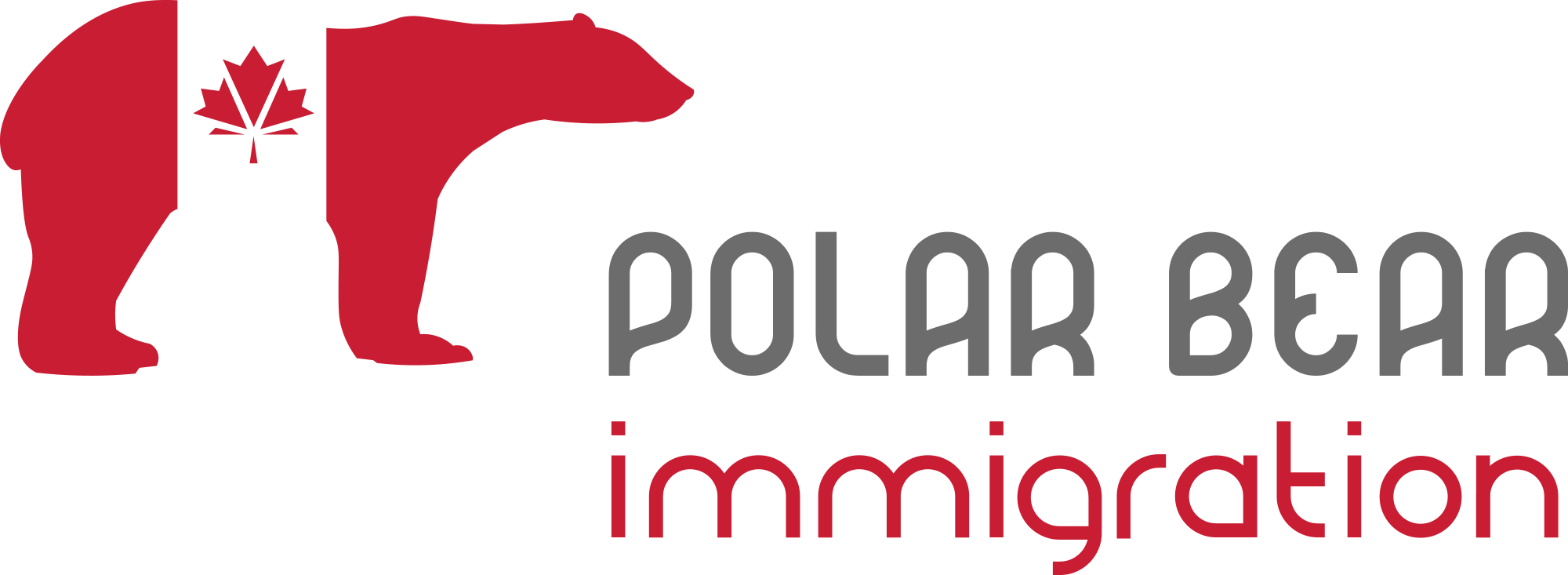Work in Canada
Our career consultants will help you develop personalized job search strategies in Canada based on your qualifications, experience, and career goals. They will assist you in analyzing the Canadian job market, and your personal profile, optimizing your resume and cover letter to meet Canadian standards and effectively highlighting your skills and achievements.

Career Consultant
Yulia Gracheva
Master of Business Administration (MBA) and Diploma in Project Management.
Extensive experience working in Canada in financial services, academia and project management, in the private and public sector.
My clients are both those who already live in Canada and are ready for a new job and those who are just about to arrive.
"I love working with text and know how to make text one of my tools in my work and in achieving my goals."
Extensive experience working in Canada in financial services, academia and project management, in the private and public sector.
My clients are both those who already live in Canada and are ready for a new job and those who are just about to arrive.
"I love working with text and know how to make text one of my tools in my work and in achieving my goals."

Career consultant
Nadezhda Gafurova
Master's degree in High Technology and Innovation Economics.
Manager of technological projects in the international company Mars
Ex-teacher of the Career Center of ITMO University.
Member of the Association for Career Counseling and Support (ACCS).
"My main work focuses are building an international career, transitioning into the technology industry and networking, and building a business network of contacts."
Manager of technological projects in the international company Mars
Ex-teacher of the Career Center of ITMO University.
Member of the Association for Career Counseling and Support (ACCS).
"My main work focuses are building an international career, transitioning into the technology industry and networking, and building a business network of contacts."

Career consultant
Alexa Karnaukhova
Career consultant.
Master's degree in Intercultural Communications, translator of English and German languages.
Ex-HR manager of a representative office of a large international company.
English tutor for business communication and interview preparation.
"Thanks to my experience as a hiring manager, I have a good knowledge of what employers are looking for and help clients to present this in the best possible light."
Master's degree in Intercultural Communications, translator of English and German languages.
Ex-HR manager of a representative office of a large international company.
English tutor for business communication and interview preparation.
"Thanks to my experience as a hiring manager, I have a good knowledge of what employers are looking for and help clients to present this in the best possible light."
Request a service
Get a step-by-step immigration plan and answers
from an immigration specialist
from an immigration specialist
By clicking «Submit Request» you agree with Privacy Policy
Request a service
Get a step-by-step immigration plan and answers
from an immigration specialist
from an immigration specialist
By clicking «Submit Request» you agree with Privacy Policy
Request a service
Get a step-by-step immigration plan and answers
from an immigration specialist
from an immigration specialist
By clicking «Submit Request» you agree with Privacy Policy
Resume and Cover letter
- A resume and cover letter prepared by our career specialist
- 30-minute call with a career counsellor
- Instructions for a job search in Canada
- List of job sites
200 CAD
Resume Review
Our professional career consultants will review your resume and provide feedback on possible improvements
50 CAD
LinkedIn Account Makeover
Setup and adjustment of your LinkedIn account by our career specialist
200 CAD
Basic job search package
Includes: resume, cover letter and LinkedIn account
325 CAD
Job interview training
Includes 3 hours of interview training with our career specialist
350 CAD
1-hour career development consultation
130 CAD
Advanced job search package + 6 months of support
2000 CAD
Advanced job search package + 12 months of support
2600 CAD
Request a service
Get a step-by-step immigration plan and answers
from an immigration specialist
from an immigration specialist
By clicking «Submit Request» you agree with Privacy Policy
The topic of employment in Canada is a common query among students and immigrants. Anyone residing in Canada, whether native-born or an immigrant, can attest to the challenges associated with job hunting in the country. Despite this, Canada continues to be an attractive choice for proficient overseas workers, contributing their expertise and experience to the Canadian economy.
Job search in the Canadian labour market, if you are already in Canada (with a work permit, PR, or Canadian citizenship), can be divided into several main phases:
Preparation for Job Search:
Labor Market Research:
Application Submission:
Networking:
Interview Preparation:
Interview and Subsequent Stages:
Offer Acceptance and Contract Signing:
Remember that each situation is unique, and it is important to adapt your job search in Canada to your needs and goals. Continuously hone your skills, keep track of labour market trends, and apply diverse strategies to achieve your career goals.
Preparation for Job Search:
- Update your resume and cover letter to align with Canadian standards.
- Research the requirements and expectations of Canadian employers in your industry.
- Define your career goals and priorities to focus on the most suitable job opportunities.
Labor Market Research:
- Study current job openings and requirements using online platforms, job websites, and networking resources.
- Research information about specific companies, their culture, values, and employers.
- Identify key industries and sectors where there is demand for your skills and experience.
Application Submission:
- Thoroughly tailor your resume and cover letter for each job opportunity.
- Submit your applications through online platforms, email, or company websites.
- Pay attention to application deadlines and follow the employer's instructions.
Networking:
- Join professional networks and communities related to your industry.
- Participate in networking events, conferences, and seminars to connect with professionals in your field.
- Utilize online platforms such as LinkedIn to build connections and explore opportunities.
Interview Preparation:
- Research the company and the position you have applied for to be prepared for questions and demonstrate your interest.
- Prepare answers to typical interview questions and conduct mock interviews.
- Identify your strengths, achievements, and examples from your previous work experience.
Interview and Subsequent Stages:
- Participate in interviews with companies that have shown interest in your applications.
- Be professional, showcase your skills, and align with the employer's requirements.
- In case of success in the interview, prepare for additional stages such as tests, background checks, and contract negotiations.
Offer Acceptance and Contract Signing:
- If a job offer is made, carefully review the terms and evaluate their alignment with your expectations.
- If necessary, negotiate salary, benefits, and other employment conditions.
- Sign the official employment contract and clarify the details of the start of work.
- If you are in Canada as a worker and aim to obtain permanent residency status, ensure that your employer and work experience meet the requirements of the immigration program or programs you have chosen.
Remember that each situation is unique, and it is important to adapt your job search in Canada to your needs and goals. Continuously hone your skills, keep track of labour market trends, and apply diverse strategies to achieve your career goals.
If you are outside of Canada and looking for a job in the country, the following main steps will assist you in your job search:
Researching the Canadian Labor Market:
Documents Preparation:
Identifying Immigration Programs:
Job Search:
Application Submission:
Interacting with Employers:
Immigration Process:
It is important to remember that job searching and the immigration process may take some time. Be patient and prepared to adapt to Canadian requirements and procedures.
Researching the Canadian Labor Market:
- Study the requirements and expectations of employers in your industry in Canada.
- Identify key industries and sectors where you want to work and learn about their characteristics and needs.
Documents Preparation:
- Update your resume and cover letter to align with Canadian standards.
- Translate your documents into English or French, depending on the province where you plan to work.
- Prepare copies of your academic diplomas, certificates, and other relevant documents.
Identifying Immigration Programs:
- Research the requirements of various immigration programs, such as federal immigration programs under the Express Entry system, Provincial Nominee Programs (PNP), pilot programs, and others that allow foreign workers with Canadian work experience/job offers to immigrate to Canada.
- Pay special attention to the requirements for employers and Canadian work experience for immigration purposes under different immigration programs.
Job Search:
- Utilize online platforms and job websites to search for open positions in Canada.
- Explore the websites of companies that interest you and check their "Careers" or "Job Opportunities" sections for available positions.
- Subscribe to job alerts and notifications to receive information about new opportunities.
Application Submission:
- Tailor your resume and cover letter for each position, emphasizing your skills, experience, and alignment with the employer's requirements.
- Submit your applications through online platforms, email, or the specified contact method on the company's website.
- Ensure that all necessary documents and translations are attached to your application.
Interacting with Employers:
- Respond to employer inquiries in a timely and professional manner.
- If an employer shows interest in your candidacy, prepare for a phone or video interview.
- Handle communication with employers responsibly, ask questions, and express your interest in the position.
Immigration Process:
- If you are interested in an employer who is willing to offer you a job, initiate the immigration process to Canada with the appropriate immigration program.
- Follow the instructions and requirements of the program, fill out all necessary forms, and provide the required documents.
- Seek professional immigration assistance if needed to streamline the process and increase the chances of success.
It is important to remember that job searching and the immigration process may take some time. Be patient and prepared to adapt to Canadian requirements and procedures.
If you face difficulties at any stage, seek consultation from our specialists who will be happy to assist you.
What is a Work Permit
Work Permit in Canada is an official document that allows a foreign worker to work temporarily in Canada. It is issued by the Ministry of Immigration, Refugees and Citizenship Canada (IRCC) and is required for most foreign workers who do not have Canadian citizenship or permanent residency to work legally in the country.
A work permit in Canada provides the opportunity to work in the country for a specific period of time and in a specific position or with a specific employer. It is typically temporary and can be issued for several months or years, depending on specific conditions and requirements.
To obtain a work permit for employment in Canada, foreign workers typically require a job offer from a Canadian employer who must secure the necessary approval or legal authorization to hire them. This official document is known as a Labor Market Impact Assessment (LMIA), which enables the Canadian employer to hire a foreign worker if there is a lack of suitable candidates among Canadian citizens or permanent residents. Once the employer obtains an LMIA, the worker can proceed to apply for a Work Permit. During the Work Permit application process, the foreign worker will need to submit various documents, including a letter from the Canadian employer containing the job offer, an employment contract, and a copy of the LMIA.
It is important to note that a work permit is not an immigration document and does not grant permanent residency or citizenship. It allows temporary work in Canada and has a limited validity period. If a foreign worker intends to permanently reside in Canada, they may need to initiate the immigration process, either independently or with the assistance of a licensed immigration consultant or lawyer.
Types of Work Permits in Canada
There are two types of Work Permits available for foreign workers in Canada:
Work Permit in Canada is an official document that allows a foreign worker to work temporarily in Canada. It is issued by the Ministry of Immigration, Refugees and Citizenship Canada (IRCC) and is required for most foreign workers who do not have Canadian citizenship or permanent residency to work legally in the country.
A work permit in Canada provides the opportunity to work in the country for a specific period of time and in a specific position or with a specific employer. It is typically temporary and can be issued for several months or years, depending on specific conditions and requirements.
To obtain a work permit for employment in Canada, foreign workers typically require a job offer from a Canadian employer who must secure the necessary approval or legal authorization to hire them. This official document is known as a Labor Market Impact Assessment (LMIA), which enables the Canadian employer to hire a foreign worker if there is a lack of suitable candidates among Canadian citizens or permanent residents. Once the employer obtains an LMIA, the worker can proceed to apply for a Work Permit. During the Work Permit application process, the foreign worker will need to submit various documents, including a letter from the Canadian employer containing the job offer, an employment contract, and a copy of the LMIA.
It is important to note that a work permit is not an immigration document and does not grant permanent residency or citizenship. It allows temporary work in Canada and has a limited validity period. If a foreign worker intends to permanently reside in Canada, they may need to initiate the immigration process, either independently or with the assistance of a licensed immigration consultant or lawyer.
Types of Work Permits in Canada
There are two types of Work Permits available for foreign workers in Canada:
- Employer-Specific Work Permit: This permit is granted to foreign workers who have received a job offer from a specific Canadian employer. The employer must first obtain the necessary approval or authorization to hire the foreign worker, such as a Labour Market Impact Assessment (LMIA). Once the employer has obtained the LMIA, the foreign worker can proceed to apply for a Work Permit. This type of permit is only valid for employment with the designated employer and in the specified position.
- Open Work Permit: An open work permit allows foreign workers to work in Canada for almost any employer, with a few exceptions such as employers blacklisted by the Government of Canada or those operating in the erotic services industry. Open Work Permits are available to specific categories of individuals, including graduates of accredited Canadian educational institutions, their spouses, spouses of foreign students or workers, refugees, and participants in special programs like International Experience Canada (IEC) and Intra-company Transfers, etc.
It's important to note that each type of Work Permit has its own eligibility criteria and requirements, and foreign workers should carefully review their options and consult the official Canadian immigration website or seek advice from a licensed immigration consultant or lawyer to determine the best option for their specific situation.
Our licensed immigration consultants (RCIC) will be happy to help you with any questions regarding getting a work permit in Canada
What is Labour Market Impact Assessment (LMIA)
The LMIA, or Labor Market Impact Assessment, is a document issued by Employment and Social Development Canada (ESDC) that is often required for a Canadian employer to hire a foreign worker when there is a shortage of suitable candidates among Canadian citizens or permanent residents. The purpose of the LMIA is to ensure that hiring a foreign worker does not hinder job opportunities for Canadian workers. Employers seeking to hire foreign workers must submit an application for an LMIA to ESDC, along with supporting documents that justify the need to recruit foreign professionals.
During the LMIA process, employers must demonstrate that:
However, there are exceptions where an LMIA is not required, such as:
The LMIA, or Labor Market Impact Assessment, is a document issued by Employment and Social Development Canada (ESDC) that is often required for a Canadian employer to hire a foreign worker when there is a shortage of suitable candidates among Canadian citizens or permanent residents. The purpose of the LMIA is to ensure that hiring a foreign worker does not hinder job opportunities for Canadian workers. Employers seeking to hire foreign workers must submit an application for an LMIA to ESDC, along with supporting documents that justify the need to recruit foreign professionals.
During the LMIA process, employers must demonstrate that:
- They have actively recruited in the Canadian labour market but have been unable to find suitable candidates.
- The salary and working conditions for the foreign worker comply with Canadian labour market norms.
- Hiring the foreign worker will have a positive impact on the Canadian labour market and economy.
- Obtaining a positive LMIA is one of the requirements for certain types of Work Permits. If an employer receives a positive LMIA decision, the foreign worker can then apply for a Work Permit to work for that specific employer.
However, there are exceptions where an LMIA is not required, such as:
- Open Work Permits, including permits for spouses/partners, graduates, refugees, and others.
- Intra-company work transfers within international companies.
- Youth mobility work programs, such as International Experience Canada (IEC) programs.
- It is important to note that the LMIA process entails compliance with specific rules and requirements. Consulting a licensed immigration lawyer or consultant can provide more detailed information and assistance for specific cases.
Work Permit Extension
To extend a work permit in Canada, it is necessary to follow a specific procedure. Here are the main steps typically required:
Application Submission: You must submit an application to extend your work visa at least 30 days prior to the expiration of your current visa. You need to fill out the appropriate form, which can be found on the official website of Immigration, Refugees and Citizenship Canada (IRCC).
Document Preparation: When submitting the application, you will need to provide certain documents to support your eligibility for the work permit extension. This may include a new letter from your employer confirming your continued employment, updated information on your salary, position, etc. Additional documents related to your status, such as a copy of your passport, photographs, and proof of financial sufficiency, may also be required.
Visa Fees Payment: When submitting the application, you may be required to pay visa fees. The fee amount can vary, so it is recommended to check the current information on the IRCC website.
Application Submission: After completing all the necessary forms and preparing the documents, you should submit your application and all relevant materials to the IRCC. Ensure that all forms and documents are accurately and completely filled out, following the specific instructions provided by Immigration, Refugees and Citizenship Canada (IRCC)
Decision Waiting Period: After submitting the application, you will need to wait for a decision from the IRCC. This process typically takes several weeks or months. Your extension may be approved or denied. If you have submitted a timely application for a Work Permit extension and your current permit expires while your application is being processed, you are eligible to continue working under implied status until a decision is reached on your application.
It is important to note that the procedure for extending a work visa may vary depending on your specific situation and type of work visa. It is recommended to refer to the official website of Immigration, Refugees and Citizenship Canada (IRCC) or consult a licensed immigration consultant or lawyer to obtain accurate information and instructions tailored to your situation.
To extend a work permit in Canada, it is necessary to follow a specific procedure. Here are the main steps typically required:
Application Submission: You must submit an application to extend your work visa at least 30 days prior to the expiration of your current visa. You need to fill out the appropriate form, which can be found on the official website of Immigration, Refugees and Citizenship Canada (IRCC).
Document Preparation: When submitting the application, you will need to provide certain documents to support your eligibility for the work permit extension. This may include a new letter from your employer confirming your continued employment, updated information on your salary, position, etc. Additional documents related to your status, such as a copy of your passport, photographs, and proof of financial sufficiency, may also be required.
Visa Fees Payment: When submitting the application, you may be required to pay visa fees. The fee amount can vary, so it is recommended to check the current information on the IRCC website.
Application Submission: After completing all the necessary forms and preparing the documents, you should submit your application and all relevant materials to the IRCC. Ensure that all forms and documents are accurately and completely filled out, following the specific instructions provided by Immigration, Refugees and Citizenship Canada (IRCC)
Decision Waiting Period: After submitting the application, you will need to wait for a decision from the IRCC. This process typically takes several weeks or months. Your extension may be approved or denied. If you have submitted a timely application for a Work Permit extension and your current permit expires while your application is being processed, you are eligible to continue working under implied status until a decision is reached on your application.
It is important to note that the procedure for extending a work visa may vary depending on your specific situation and type of work visa. It is recommended to refer to the official website of Immigration, Refugees and Citizenship Canada (IRCC) or consult a licensed immigration consultant or lawyer to obtain accurate information and instructions tailored to your situation.



By working with us you get quality service with high professional standards and attention to each client
Contact Us





+1.236.877.4664

© 2026 Polar Bear Immigration
Polar Bear Immigration is managed by a licensed Canadian immigration consultant, Serge Ignatieff (RCIC# R528113) and strictly follows all requirements for processing and protecting the personal data of clients.
Privacy Policy
Polar Bear Immigration is managed by a licensed Canadian immigration consultant, Serge Ignatieff (RCIC# R528113) and strictly follows all requirements for processing and protecting the personal data of clients.
Privacy Policy

